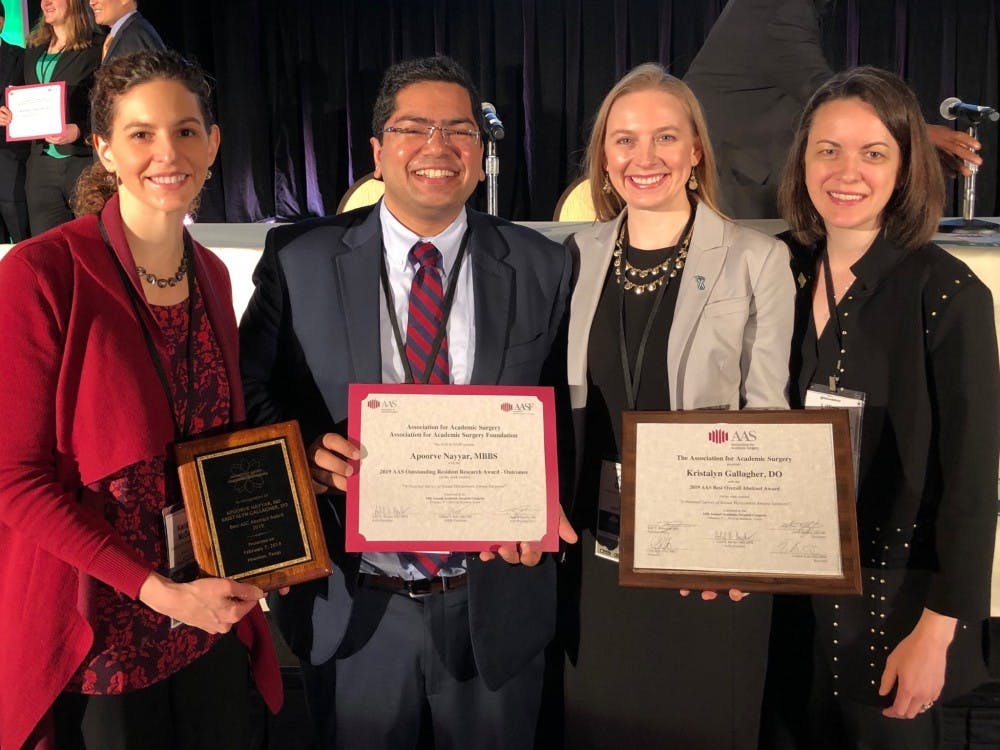Fifty-eight percent of women surgeons experience sexual harassment in the workplace, according to a recent study led by members of UNC Surgery.
The study was led by Kristalyn Gallagher, UNC Surgery’s section chief of breast surgery and surgical director of the breast care program. Postdoctoral research fellow Apoorve Nayyar worked closely alongside Gallagher and served as the first author of the study. Seven other researchers collaborated on the project, including three from UNC.
Gallagher said she had the idea to complete the study after hearing anecdotal evidence from other surgeons who had experienced sexual harassment.
“That’s when I started thinking that it would be good to provide some data to see how often this is actually occurring, because really, the only way to change something is to first research it and figure out how often it’s happening, what the prevalence is,” Gallagher said. “So that way we can start the conversation and change the environment to make it both equitable and professional.”
From April to July 2018, the research team collected data through an anonymous online survey sent to the Association of Women Surgeons, the American College of Surgeons and targeted social media platforms such as surgeon-specific Facebook groups. The survey asked recipients to identify whether or not they had experienced sexual harassment within the past year.
Over 1,000 surgeons responded to the survey, of which 25 percent identified as men and 74 percent identified as women. One percent of respondents preferred not to specify their gender.
In addition to over half of women surgeons experiencing sexual harassment, the study also found that fellows or trainees were twice as likely to experience sexual harassment than faculty members.
“What we also saw was non-heterosexual people — LGBTQIA people — were also more likely to be harassed as compared to heterosexual people,” Nayyar said.
Among the surgeons who said they had experienced sexual harassment, only 16 percent reported it. Reasons for not reporting the harassment or assault included fear of negative consequences for their career, embarrassment, fear of retaliation and fear of inaction.



